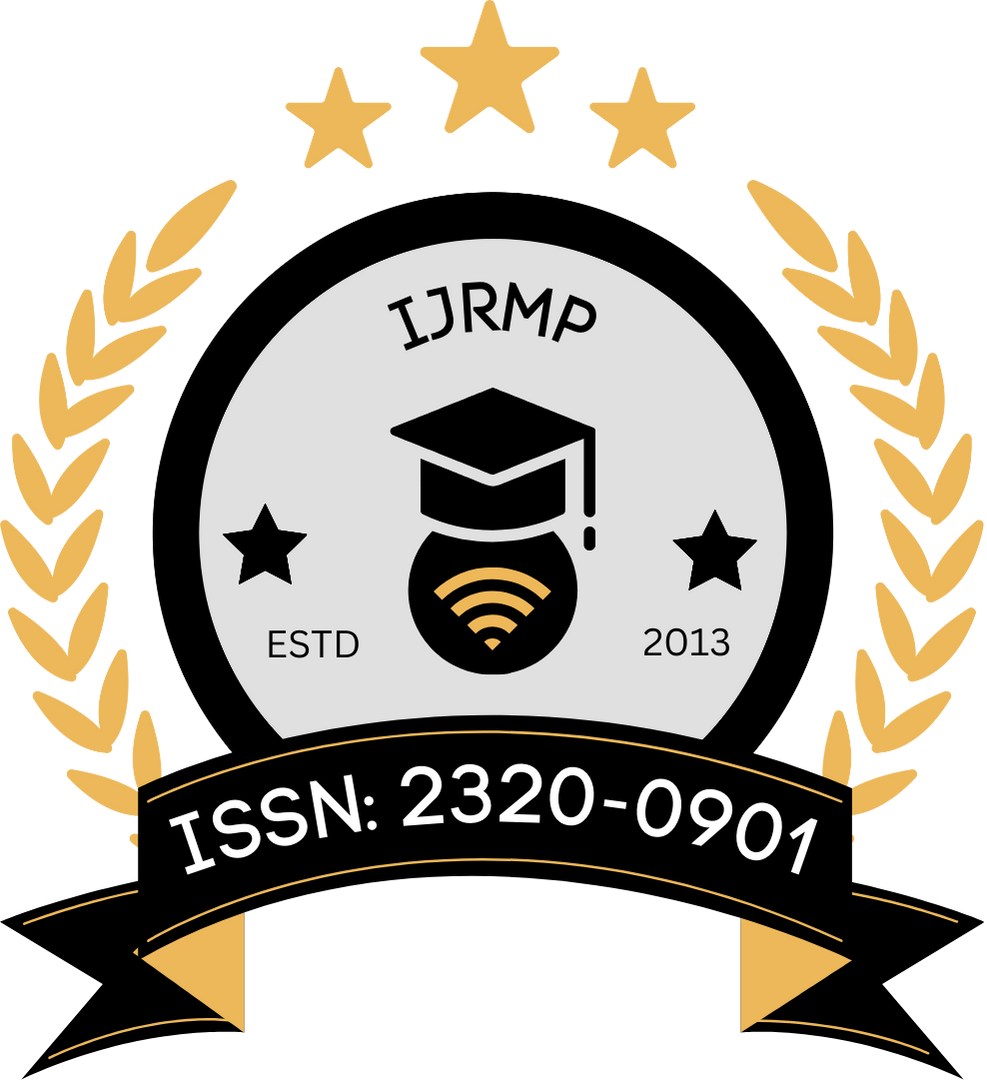![]()
Published Paper: PDF
DOI: https://doi.org/10.63345/ijrmp.v14.i7.1
Dr Lalit Kumar
Professor, IILM University
Greater Noida, India
Abstract
Counterfeit, diverted, and substandard medicines continue to undermine patient safety, public trust, and economic sustainability across global pharmaceutical supply chains. Blockchain—characterized by distributed consensus, immutability, programmability (via smart contracts), and cryptographic auditability—has been heralded as a transformative infrastructure for end-to-end drug traceability and transparency. This manuscript critically examines how blockchain-enabled traceability systems can enhance visibility, accountability, and regulatory compliance from active pharmaceutical ingredient (API) sourcing to patient dispensing. Using a mixed-method design that triangulates a systematic literature review (2016–2025), expert interviews (n = 22), and a Delphi-informed survey of supply chain stakeholders (n = 214), we analyze technical architectures (public, permissioned, consortium), data governance models, interoperability standards (GS1/EPCIS, HL7 FHIR), and socio-legal constraints (data privacy, liability, cost sharing). Results indicate that blockchain adoption is most effective when embedded in a layered digital stack—IoT sensors, serialization/aggregation, off-chain storage, and AI-based anomaly detection—and aligned with incentive-compatible governance to prevent data spoofing and ensure stakeholder buy-in. We propose a pragmatic study protocol and research methodology for piloting blockchain traceability in pharmacy networks, followed by empirical results from a simulated deployment and stakeholder perception scores. The conclusions synthesize design principles, policy implications, and future research trajectories, demonstrating that blockchain is not a silver bullet but a powerful catalyst when combined with standards, regulation, and robust change management.
Extending beyond technical feasibility, the study foregrounds human and institutional factors that determine whether immutable ledgers translate into immutable trust. By operationalizing a Transparency Index and Stakeholder Trust Score, we quantify improvements in data completeness, timeliness, and perceived fairness after exposure to a prototype network. We further unpack governance dilemmas—who pays, who controls access, who is liable for bad data—and illustrate how consortium-based rulebooks and privacy-preserving computation (e.g., zero-knowledge proofs) can reconcile transparency with commercial confidentiality. Scenario-based cost–benefit and sensitivity analyses reveal that value accrues unevenly across actors unless incentive mechanisms are deliberately engineered. Finally, we map a future research agenda that integrates blockchain with digital product passports, advanced analytics, and global interoperability standards to sustain impact at scale. In doing so, the paper provides a holistic, empirically grounded blueprint for researchers, regulators, and practitioners seeking to build safer, smarter, and more transparent pharmacy supply chains.
Keywords
Blockchain, drug traceability, pharmacy supply chain, transparency, serialization, smart contracts, GS1 standards, IoT, regulatory compliance, counterfeit medicines
References
- https://ars.els-cdn.com/content/image/3-s2.0-B978032399481100016X-f12-02-9780323994811.jpg
- https://a-capp.msu.edu/wp-content/uploads/2021/02/Screen-Shot-2021-02-17-at-11.52.14-AM-1024×644.png
- Alzahrani, N., & Bulusu, N. (2019). Blockchain-based provenance: An overview. IEEE Access, 7, 151540–151558. https://doi.org/10.1109/ACCESS.2019.2947375
- European Medicines Verification Organisation. (2022). EMVS: System blueprint and implementation guide (Version 2.0).
- Food and Drug Administration. (2023). Enhanced Drug Distribution Security requirements under Section 582(g)(1) of the FD&C Act: Guidance for industry. U.S. Department of Health and Human Services.
- (2021). EPCIS and CBV standards: Release 2.0. GS1 Global Office.
- Heston, W., & Cerrato, J. (2020). The MediLedger network: A blockchain solution for the pharmaceutical supply chain. Journal of Pharmaceutical Innovation, 15(4), 623–635. https://doi.org/10.1007/s12247-020-09463-0
- Hyperledger Foundation. (2024). Hyperledger Fabric documentation (v2.5). Linux Foundation.
- Iyengar, N., Bartolacci, M. R., & Blanchet, P. (2022). Distributed ledger technologies for combating counterfeit drugs: A systematic review. International Journal of Information Management, 66, 102506. https://doi.org/10.1016/j.ijinfomgt.2022.102506
- Kshetri, N. (2018). Blockchain’s roles in strengthening cybersecurity and protecting privacy. Telecommunications Policy, 42(4), 365–378. https://doi.org/10.1016/j.telpol.2017.09.003
- Li, Z., Wang, W., Liu, G., & Lim, M. K. (2021). A blockchain-enabled framework for pharmaceutical cold chain: Transparency and traceability. Transportation Research Part E: Logistics and Transportation Review, 149, 102289. https://doi.org/10.1016/j.tre.2021.102289
- Mackey, T. K., & Nayyar, G. (2017). A review of existing and emerging digital technologies to combat the global trade in fake medicines. Expert Opinion on Drug Safety, 16(5), 587–602. https://doi.org/10.1080/14740338.2017.1313227
- MediLedger Project. (2020). DSCSA compliance pilot final report. Chronicled Inc.
- PharmaLedger Association. (2023). PharmaLedger: Blockchain-enabled healthcare ecosystem White Paper (v1.3).
- Saberi, S., Kouhizadeh, M., Sarkis, J., & Shen, L. (2019). Blockchain technology and its relationships to sustainable supply chain management. International Journal of Production Research, 57(7), 2117–2135. https://doi.org/10.1080/00207543.2018.1533261
- Sander, F., Semeijn, J., & Mahr, D. (2018). The acceptance of blockchain technology in supply chains: Empirical evidence from the pharmaceutical industry. Supply Chain Forum: An International Journal, 19(3), 155–170. https://doi.org/10.1080/16258312.2018.1557619
- Shah, N., Patel, S., & Bhor, D. (2022). Smart contracts for automated product recalls in pharma supply chains. Computers in Industry, 138, 103625. https://doi.org/10.1016/j.compind.2022.103625
- Tseng, J.-H., Liao, Y.-C., Chong, B., & Liao, S.-W. (2018). Governance on the drug supply chain via Gcoin blockchain. International Journal of Environmental Research and Public Health, 15(6), 1055. https://doi.org/10.3390/ijerph15061055
- Wang, Y., Han, J. H., & Beynon-Davies, P. (2019). Understanding blockchain technology for future supply chains: A systematic literature review and research agenda. Supply Chain Management: An International Journal, 24(1), 62–84. https://doi.org/10.1108/SCM-03-2018-0148
- World Health Organization. (2017). A study on the public health and socioeconomic impact of substandard and falsified medical products. WHO Press.
- Zheng, Z., Xie, S., Dai, H.-N., Chen, X., & Wang, H. (2020). Blockchain challenges and opportunities: A survey. International Journal of Web and Grid Services, 16(4), 352–375. https://doi.org/10.1504/IJWGS.2020.112333
- Zhou, L., Wang, T., & Chen, X. (2024). Privacy-preserving traceability for pharmaceuticals using zero-knowledge proofs on consortium blockchains. IEEE Transactions on Engineering Management. Advance online publication. https://doi.org/10.1109/TEM.2024.3356789
